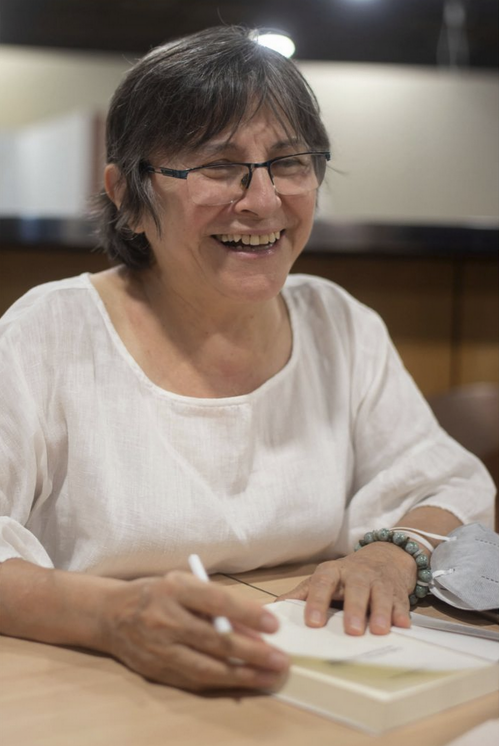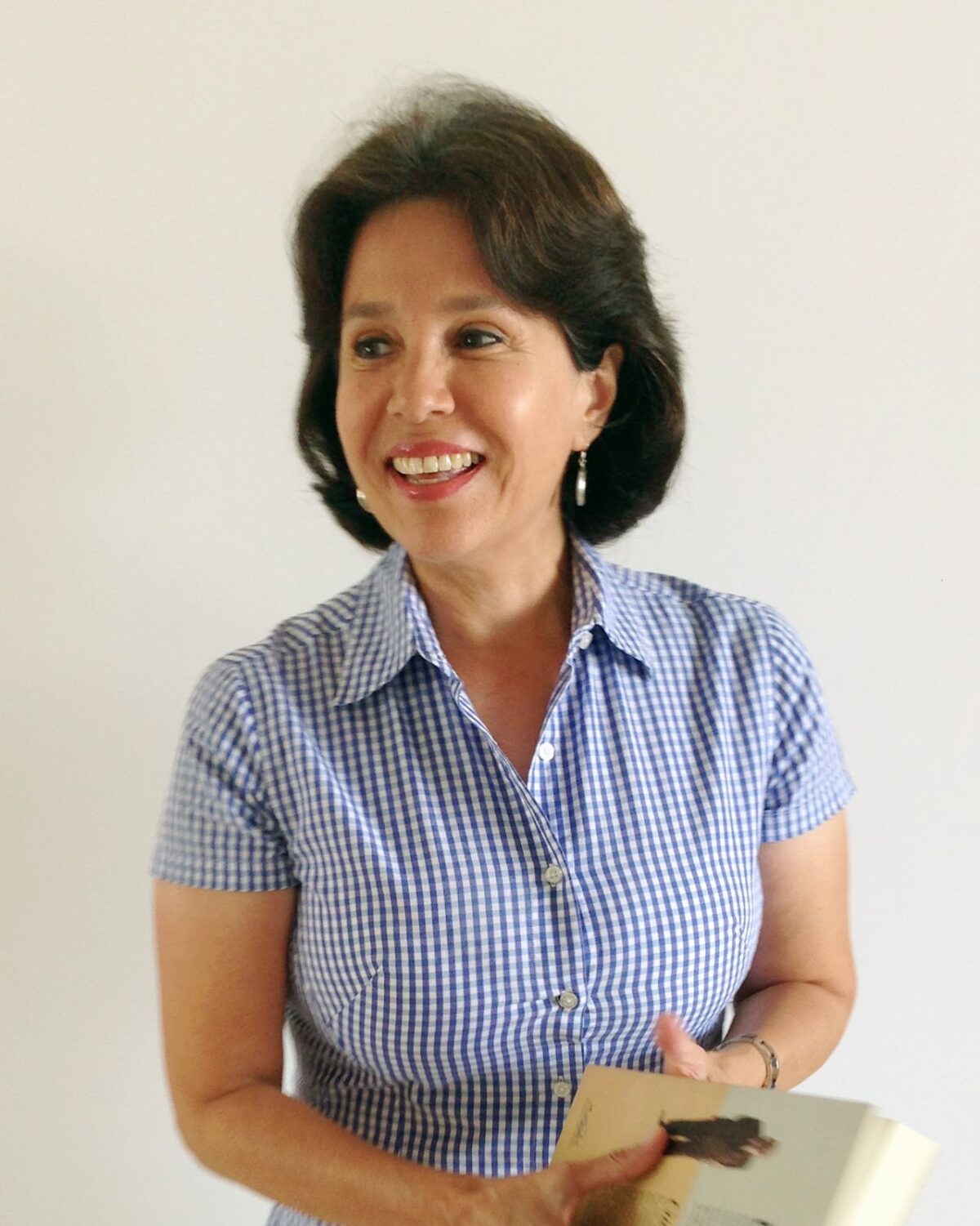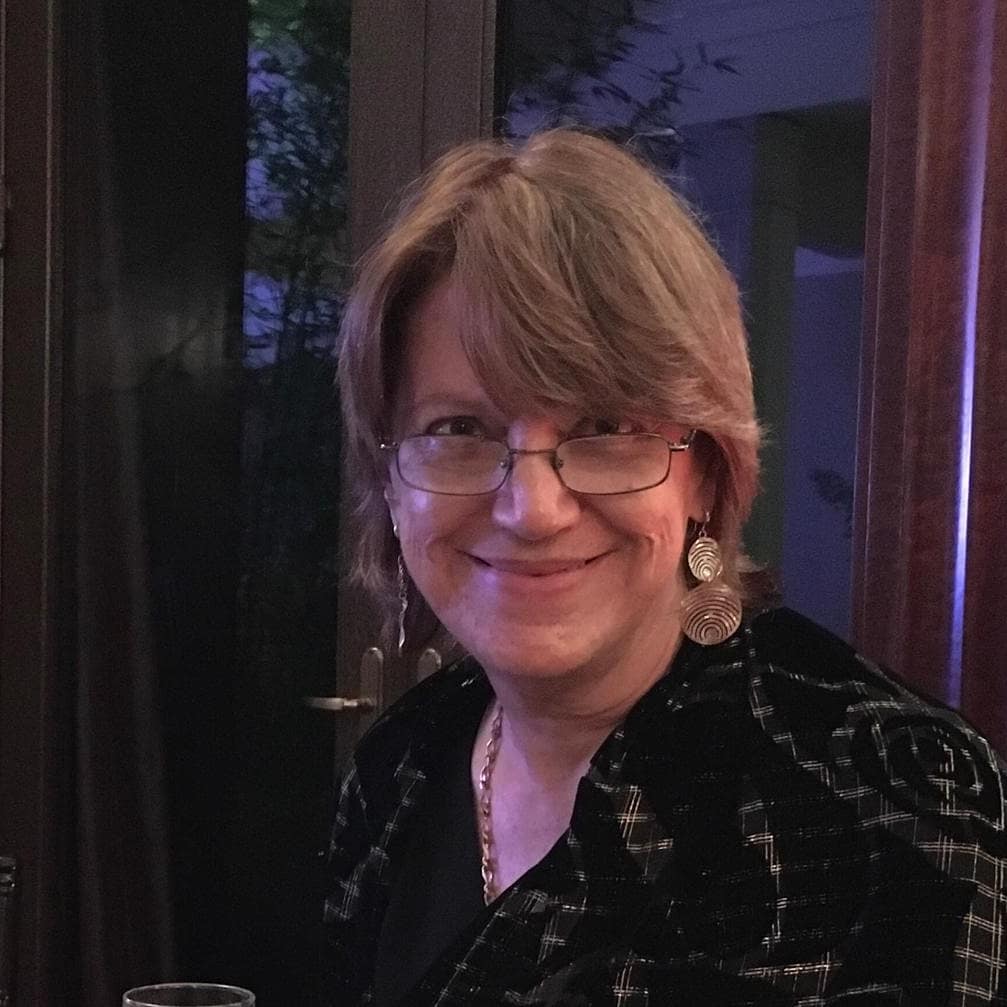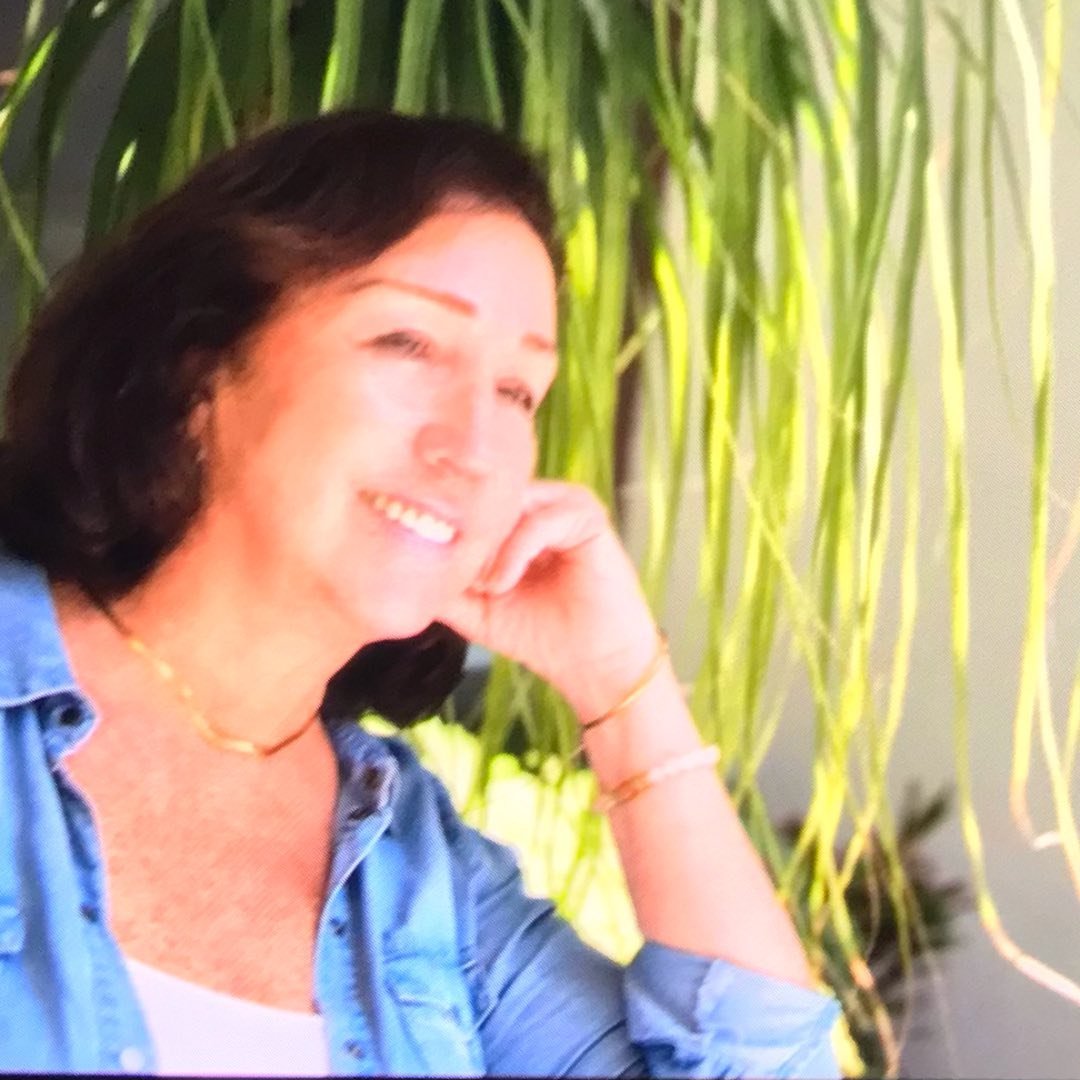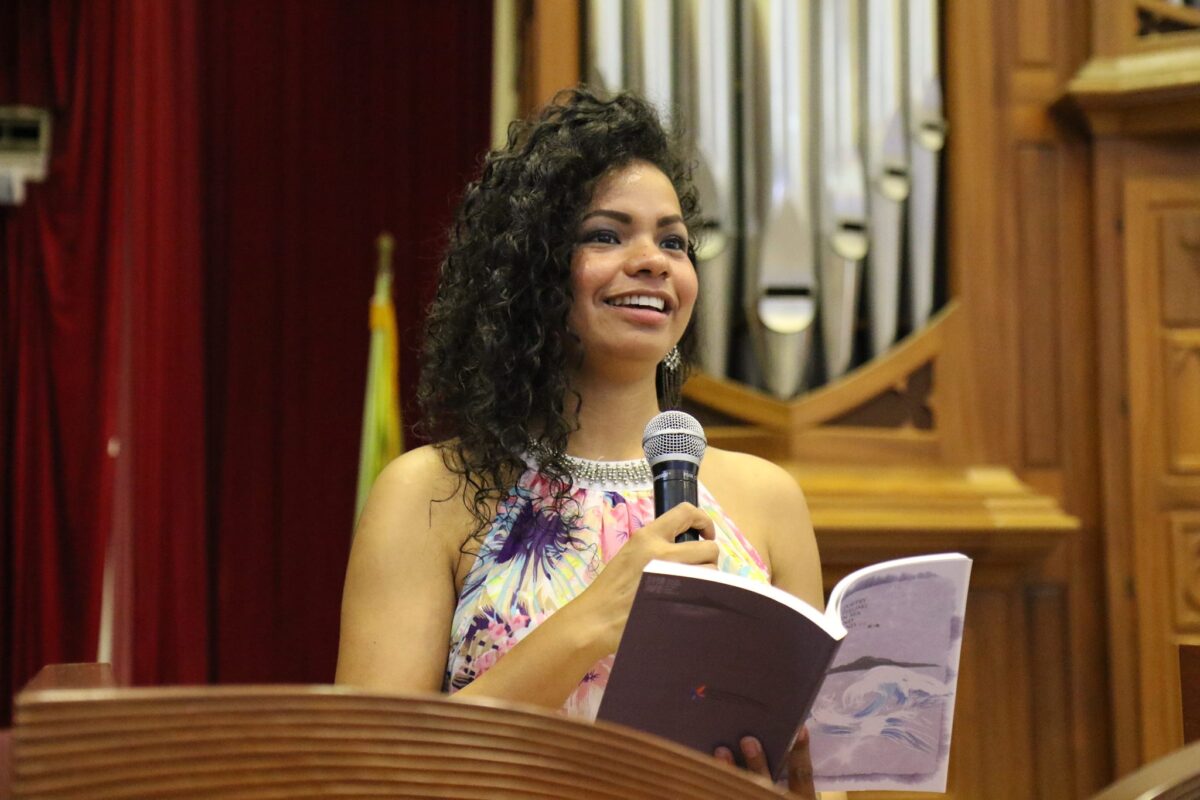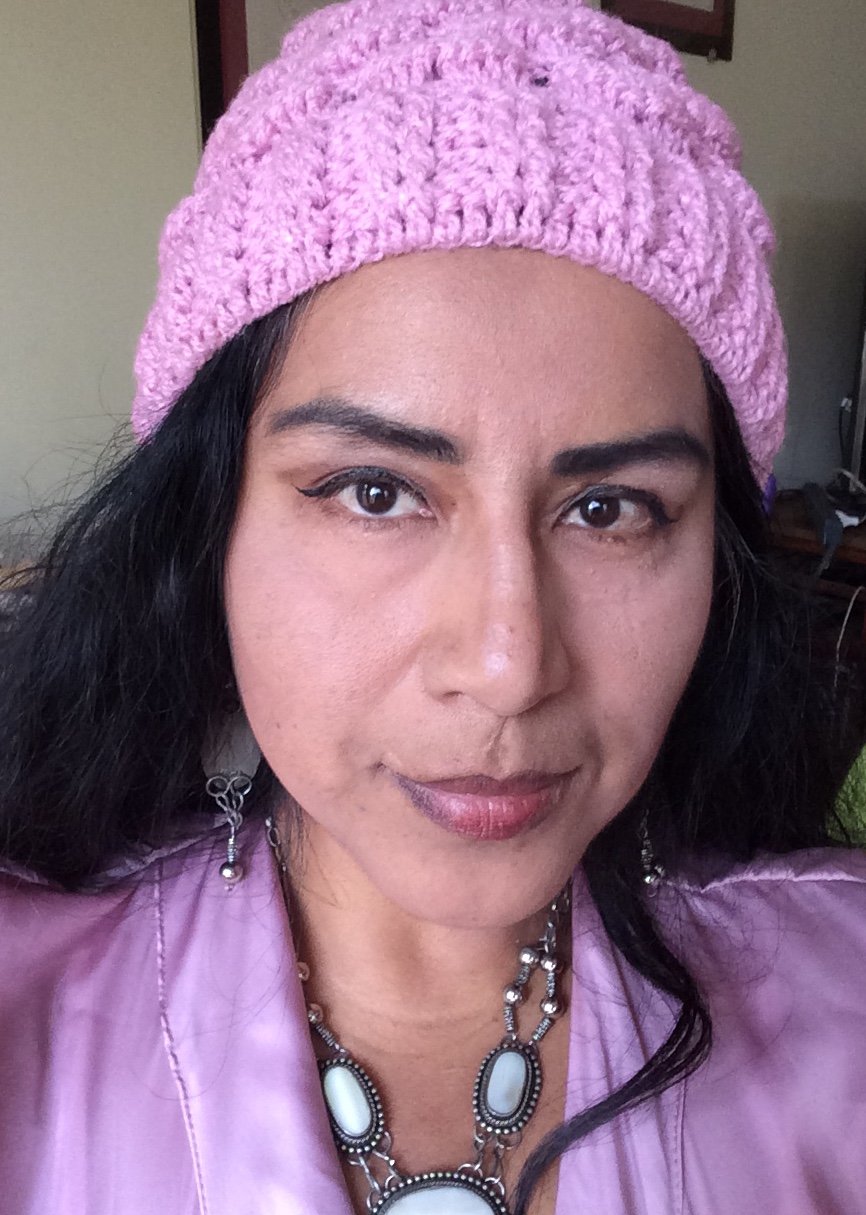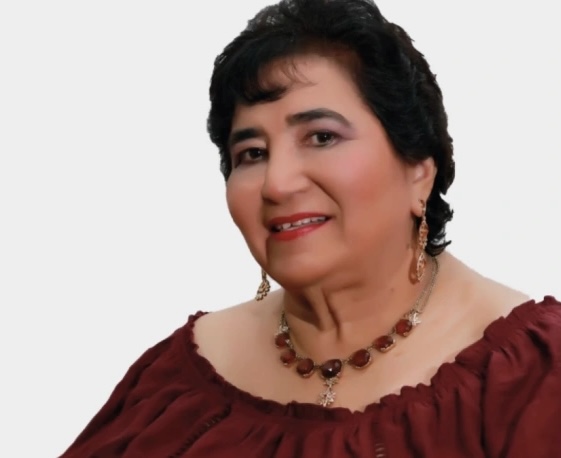María Leonor Baquerizo Díaz Granados (Guayaquil, 1960) is an Ecuadorian writer, professor, and empowerment coach. She is known for her contributions to Ecuadorian literature, particularly in the genre of short stories, where she explores psychological themes and human emotions. In addition to her literary work, she teaches at the Universidad Católica de Santiago de Guayaquil and ITS, and directs programs at Empowerment Coach Consultant. Her works, such as “Solo quería entender” and “Las grandes cosas se pierden en la niebla”, have earned her recognition as a significant figure in Ecuador’s literary scene.
Continue reading “María Leonor Baquerizo”Category: Female writers
Martha Chávez
Martha Chávez Negrete (Guayaquil, 1967) is an Ecuadorian doctor, psychiatrist, and writer. She is known for her contributions to contemporary Ecuadorian literature, particularly in the genres of short stories and novels. Her notable works include Precisando el sentido (1999), Uno de estos tristes días virtuales (2003), and her acclaimed novel La memoria corre a mil (2008), which won third prize in the genre of novels for its exploration of memory and identity. In addition to her literary career, Chávez is also a university professor and a contributor to various literary magazines in Ecuador.
Continue reading “Martha Chávez”Carolina Andrade
Carolina Andrade (Guayaquil, 1963) is an Ecuadorian writer, university professor, and journalist known for her poignant short stories and novellas. She studied in Mexico at the literary workshops of the Sociedad General de Escritores Mexicanos (SOGEM) and later earned postgraduate degrees in Education, Humanistic Studies, and Communication. Her notable works include Detrás de sí (1994), De luto (1999), and the novel A orillas de un relato (2024), which explore themes of death, existential absurdity, and human fragility. Andrade’s works have been translated into multiple languages and featured in prestigious literary anthologies.
Continue reading “Carolina Andrade”Denise Rosales
Denise Rosales (Guayaquil, 1954) is an Ecuadorian novelist and short story writer known for her only novel, Los vértices del triángulo (1994), which explores themes of love and desire through a bold narrative of a love triangle. Her work has been featured in anthologies such as Libro de posta (1983), Frauen in Lateinamerika 2 (1987), and Antología de narradoras ecuatorianas (1997). Rosales has lived in Milan, Italy, and is recognized as part of the movement of prominent Ecuadorian women writers who gained recognition in the 1980s and 1990s.
Continue reading “Denise Rosales”Martha Rodríguez Albán
Martha Rodríguez Albán (Loja, 1959) is an Ecuadorian fiction writer, literary scholar, and educator. She holds a Doctorate in Medicine and Surgery from the Universidad Católica de Santiago de Guayaquil and a Master’s in Cultural Studies from the Universidad Andina Simón Bolívar. As a fiction writer, she is known for her short story collections Nada más el futuro (1996), which won the Joaquín Gallegos Lara National Award, and Pero es después, bajo el sol (2001). In the field of literary criticism, she authored Narradores ecuatorianos de los 50: poéticas para la lectura de modernidades periféricas (2009) and Crítica literaria y sociedad en el Ecuador (1930-2000) (2022). She currently teaches at the Universidad Central del Ecuador in Quito.
Continue reading “Martha Rodríguez Albán”Marcela Veintimilla
Marcela Veintimilla Carrión (Zaruma, 1961) is an Ecuadorian short story writer who gained recognition during the 1980s. She was part of the Advanced Literature Workshop at the Central Bank/Casa de la Cultura Ecuatoriana, Núcleo del Guayas, under the guidance of Miguel Donoso Pareja. Her debut collection, Cualquier cosa me invento para ver (1989), presents introspective and experimental narratives that explore identity, personal dilemmas, and societal expectations. Her work has been included in notable anthologies.
Continue reading “Marcela Veintimilla”Livina Santos
Livina Santos (Guayaquil, 1959) is an Ecuadorian writer and educator known for her contributions to feminist literature in Ecuador. She gained recognition with her short story collection Una noche frente al espejo (1989), which explores themes such as gender roles, societal repression, and existential issues through a feminist lens. A former member of the Advanced Literature Workshop at the Central Bank of Ecuador, she has also contributed to various literary anthologies. Alongside her literary career, Santos has taught literature and led numerous literary workshops, shaping the literary landscape of Ecuador.
Continue reading “Livina Santos”Liliana Miraglia
Liliana Miraglia (Guayaquil, 1952) is an Ecuadorian writer, storyteller, and photographer known for her short stories that blend irony, humor, and subtle reflections on women’s roles in society. She was a key member of the Creative Writing Workshop of the Central Bank of Guayaquil, led by Miguel Donoso Pareja, and her works often explore the complexities of everyday life with a minimalist and ambiguous narrative style. Her notable works include “La vida que parece” (1989; The Life That Appears) and “Un close up prolongado” (1996; A Prolonged Close-up). Many of her other stories have been featured in anthologies, underscoring her significance in Ecuadorian literature of the late 20th century.
Continue reading “Liliana Miraglia”Fabiola Solís de King
Fabiola Solís de King (Quito, Ecuador, October 8, 1936) is an Ecuadorian writer, clinical psychologist, and agronomist. Known for her penetrating exploration of human psychology, her work often delves into themes of mental health, gender, and the boundaries between reality and madness. She has published short story collections such as Al otro lado del muro (1978) and Mundo aparte y otros mundos (1983), as well as co-authored the pioneering research book La sexualidad femenina en el Ecuador (1987). Her work, characterized by experimental techniques, situates her among the leading Ecuadorian women writers of the 1970s. Her stories have been featured in several anthologies, both nationally and internationally, solidifying her as a significant voice in Ecuadorian literature.
Continue reading “Fabiola Solís de King”María Inés Tinajero
María Inés Tinajero, an Ecuadorian author, recently presented her debut novel Ritorno a Venezia at the Feria Internacional del Libro de Guayaquil. This novel tells the story of a woman who defies societal norms to become the first female gondolier in Venice. The book, published by Línea Primitiva Editorial, marks Tinajero’s entry into the literary world and explores themes of gender, tradition, and resilience.
Nataly Daniela Flores Jara
Nataly Daniela Flores Jara (Guayaquil) is an emerging Ecuadorian author known for her novel Nacidos del Diamante: Cristhalina (2024). Her work explores themes of interplanetary conflict, destiny, and personal tragedy, blending imaginative world-building with emotional depth. Flores Jara was featured at the 2024 Guayaquil International Book Fair, where she presented her debut novel as part of Ecuador’s emerging literary voices.
Continue reading “Nataly Daniela Flores Jara”Génesis Andrea Toapanta Ramos
Génesis Andrea Toapanta Ramos, also known as Andrea Toapanta (Quito, 2001) is an Ecuadorian poet known for her evocative and introspective style. Influenced by writers like Pablo Neruda and César Vallejo, she began writing poetry in her childhood and gained national recognition with her collection Puntos Suspensivos, which consists of eight poems and won second prize at the 3rd “David Ledesma” National Poetry Contest in 2021. Her work explores themes of love, loss, and existentialism, characterized by vivid imagery and emotional depth.
Continue reading “Génesis Andrea Toapanta Ramos”María Fernanda Portés Valencia
María Fernanda Portés Valencia, known by her pseudonym Nefer PorVa (Guayaquil, Ecuador, January 19, 1987), is an award-winning writer and cultural manager who explores ecological, erotic, romantic, and experiential poetry, as well as children’s literature. Her notable work includes En el aire hay sexo (“There Is Sex in the Air”), a collection of erotic poetry. She is the founder of the Fundación de Integración Social y Desarrollo Humano Sostenible (FISDACE) and Círculo Artístico Cultural Brújula, promoting social and cultural projects in marginalized communities. Recognized internationally as a Peace Ambassador, she has received numerous accolades for her literary work. She has also worked as a First Officer in Ecuador’s Merchant Navy and as an engineer in Transport Administration and Maritime Ports.
Continue reading “María Fernanda Portés Valencia”Rosario de Fátima A’Lmea Suárez
Rosario de Fátima A’Lmea Suárez (Quito, Ecuador, 1973) is an Ecuadorian academic, editor, and literary critic specializing in Spanish literature, semiotics, and curriculum design. She earned her Ph.D. in Literature from Universidad Andina Simón Bolívar in 2021 and has held teaching positions at prestigious institutions, including Pontificia Universidad Católica del Ecuador and Universidad Politécnica Salesiana. Her career spans over two decades, during which she has taught courses in linguistics, discourse analysis, and contemporary Spanish literature. As an editor, she has worked with several prominent Ecuadorian authors, and her research in literary criticism and cultural studies has been widely cited. In addition to her academic work, she has actively promoted Ecuadorian literature by organizing literary events and tributes, particularly focusing on Ecuadorian women writers.
Continue reading “Rosario de Fátima A’Lmea Suárez”Lady Párraga
Lady Párraga (Manabí), is an Ecuadorian poet and committed educator, acclaimed for her profound exploration of themes such as memory, loss, and the intricate dynamics of human emotion. Her significant contributions to literature are reflected in her compelling works, including “El vuelo de mi alma” (2005), “Flor de lis” (2012), “Cristales de esperanza” (2017), and her latest reflective collection, “Somos infinitos” (2023). Párraga’s insightful and evocative verses have secured her a prominent place in various national and international publications and anthologies, marking her as an influential and esteemed figure in Ecuador’s rich literary tradition.
Continue reading “Lady Párraga”
